Embracing the Franciscan Future - October 1, 2021riving from the Quebec City airport on the way to a retreat in the French Canadian village of Cacouna, Carol, a Secular Franciscan, asked: "How will we attract young people to the Secular Franciscan life? What does it say about our charism, when it doesn't seem to speak to young people?" Friar Benny, an amiable Capuchin, originally from India and now a member of the Canadian Capuchin community was also with us. Those questions, he said, apply equally to the First Order. In Canada many friaries have closed because of a shortage of vocations. "I am not the only friar from a missionary country," he added, "friars are coming from Asia, Africa, and Eastern Eurpoe to support community life and the ministries of the Franciscans here." There is, of course, no institutional guarantee of the future; yet members of all three branches rely on God's assurance to St. Francis that "though the Order be reduced to three, it will remain by My grace unshaken (2 Celano, 158)." But what might the future look like and how do we get there? The Future: Gift of the Present St. Francis' embrace of the Gospel was neither a nostalgic journey into the past nor an attempt to adjust to the status quo of the Church of his time. It was a decisive act that changed how he saw the world and understood himself. It was a conversion in the sense of Jesus' announcement: "The time has come, repent and believe the good news! (Mark 1)" The future Jesus' contemporaries so ardently desires was now. These words also shed liight on St. Francis' conversion. For Francis the "time" was there before his eyes: the dilapidated Church, the leper on the road, the disparity between the merchant class (to which he belonged) and the beggars and migrants (who were left behind in the emergence of towns and cities). Francis was prepared, whatever the cost, to repent (to place into question what he expected from life); and to believe (to entrust his future to a God who would lovingly show him what do do next. In this way Francis heard the call.... Download Complete PDF File Here
0 Comments
by Richard Nucci and submitted by the St Francis and St Clare Fraternity DOWNLOAD THE STORY
Francis’ feelings of guilt and responsibility only underscored his profound sense of “this is not the way it should be.” His resolve to become what he abhorred—poor, homeless, and ignored—was not so much self-sacrifice on his part as it was a movement of his soul to forge truly human bonds with people and with a fate that his middle-class status had given him the freedom to overlook.
Reflection St. Paul wrote to the Romans that “God made the one who did not know sin to be sin for us so that God's righteousness would be produced in us (Rom. 1)” In a similar way, Francis, who did not know poverty, became poor for the poor, so that God’s mercy would be manifest in him. Discerning how, in the current crisis of health and health care, you and I can become experiences of God’s mercy for others, begins in our hearts. What are our strongest feelings, our deepest fears, and our highest hopes? How do you make sense out of those feelings? Do we really understand their pain?” We are called, like Francis, to forge truly human bonds with people, whose lives are troubled or are feeling overwhelmed by the uncertainty of an invisible virus whose progress can only be traced in its effects. The distance between “Isn’t it awful” and “I can make a difference” is not always short. But it is a distance that Francis travelled and it is one that you and I can also cross. “The Lord gave me brothers.” These words from St. Francis’ Testament are a reminder that we don’t have to travel alone.
St. Francis had no road map for where he should be going. But he was not indifferent to what was happening in his world. He followed his heart and in doing so discovered anew the heart of God. Discernment comes when we sense that what we want and what God wants are aligned. When we decide to act, decide what we can do and make the intention to do it, we realize, perhaps to our own surprise, that we are part of God’s loving presence in a world turned upside down by a disease that has changed our daily lives in ways we could not have imagined.
From Jessie de la Cruz and all the members of our Lady of the Philippines Secular Franciscans
by Margaret Anne Ashfield, ofs and former Spiritual Assistant What is a family? What makes a holy family? What does the Feast of the Holy Family have to do with a band concert?
Many experts on the life of St. Francis have speculated as to why Francis travelled to Egypt at that time. Was it simply a pilgrimage to the Holy Sites? There are those who think he wanted to be martyred. Some believe he wanted to share his gift of peace with the sultan. Hagiographers writing to promote Francis’ piety and worthiness to sainthood prefer the martyr theory. No one really knows for sure the reason for his journey but we do know that Francis believed he could spread peace by being humble and submitting himself to others in brotherly love. We do know his foray into the sultan’s territory did not bring him martyrdom and that since his visit with Al-Malik, the Franciscan order has been welcome in Muslim territory. In fact, the Holy Land Franciscans are celebrating over 800 years of living, working, and guiding pilgrims in the Holy Land. The only restriction given by the sultan to Francis was that the brothers refrain from preaching against Mohammad. Can you imagine what the world would be like today if all the ambassadors of Christ to the Muslims were models of Francis of Assisi? by Debbie Richard ofs
This is a touching recording that gives an insight into the heart of Jean Vanier. Listen to it here
|
||||||||||||||||||||||||||||||||
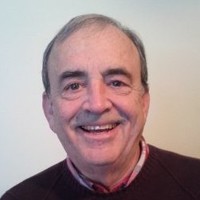
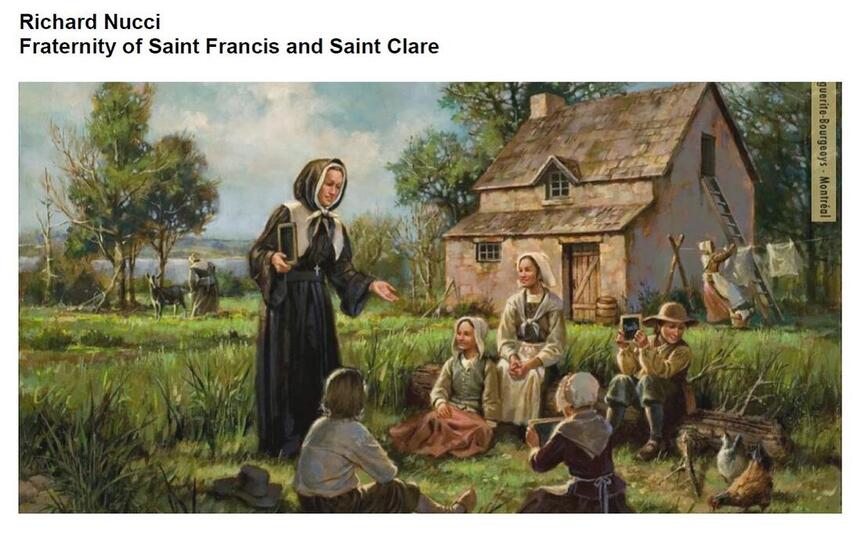
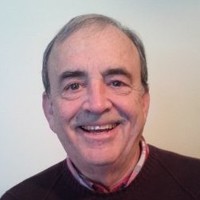
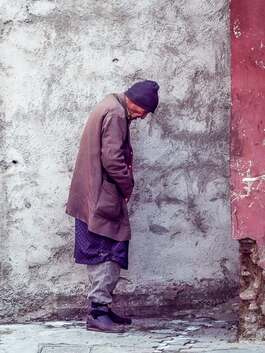
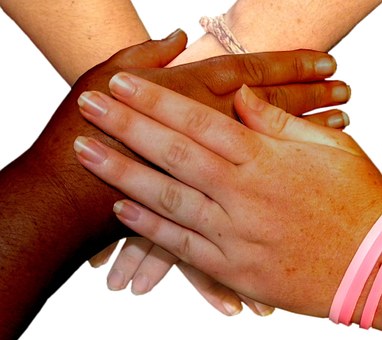
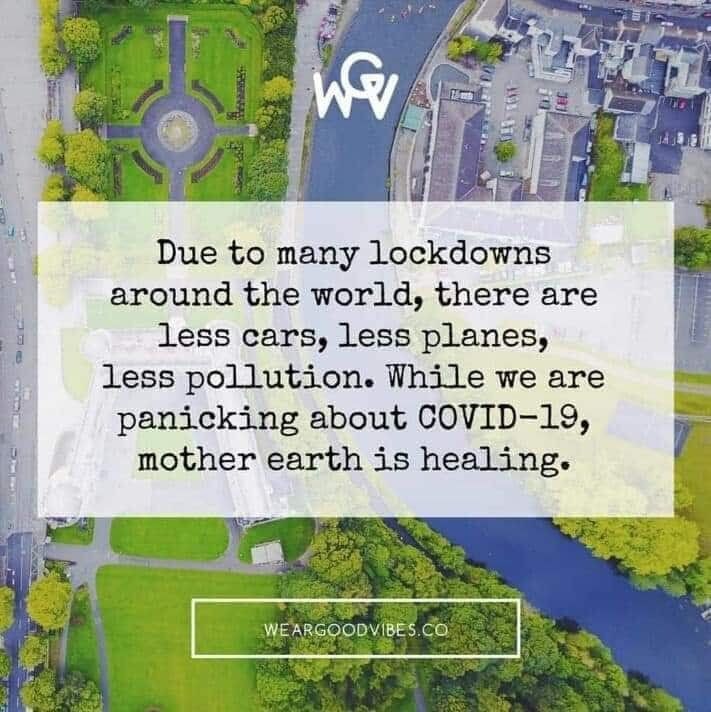

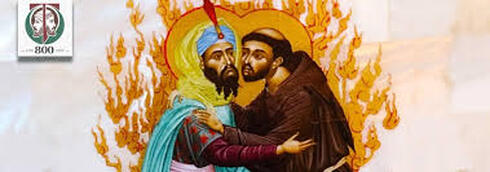
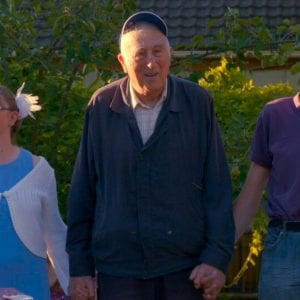
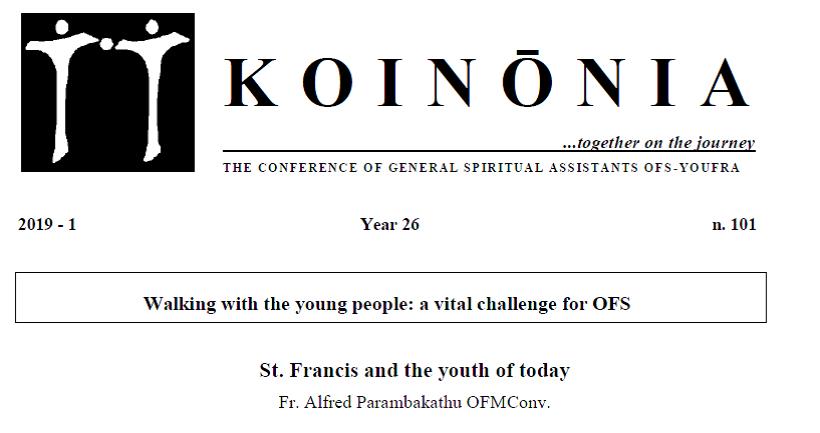
 RSS Feed
RSS Feed